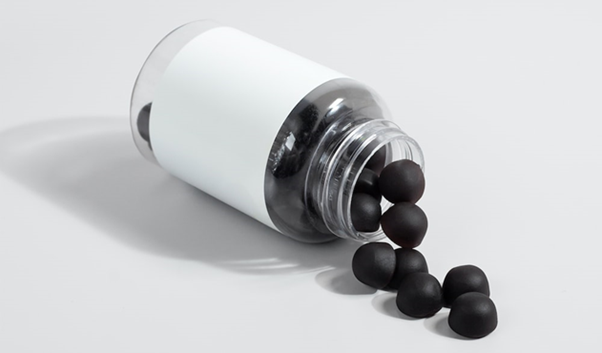Best Supplements for Digestion, According to Dietitians: The Role of Probiotics, Prebiotics and Digestives Enzymes

Digestive health is crucial for overall well-being, as it directly impacts nutrient absorption, energy levels, and immune function. With numerous supplements available on the market, it can be challenging to determine which ones are worth incorporating into your daily routine. In this article, we will discuss the best supplements for digestion, according to dietitians, and explore how Vitamin D3 gummies can contribute to digestive health.
Probiotics

Probiotics are live microorganisms that promote a healthy balance of gut bacteria. They are widely recommended by dietitians for improving digestive health, as they help maintain a good balance of beneficial bacteria in the gut. This balance is essential for optimal digestion, nutrient absorption, and immune function.
Some common sources of probiotics include yogurt, kefir, sauerkraut, and kimchi. Probiotic supplements are also available in various forms, such as capsules, powders, and liquids. When you take probiotics, you're essentially adding more "good" bacteria to your gut. This can help to improve digestion and gut health in a number of ways. For example, probiotics can help to:
- Restore the balance of good and bad bacteria in the gut
- Improve digestion by breaking down food and absorbing nutrients
- Reduce inflammation in the gut
- Boost the immune system
Prebiotics
Prebiotics are non-digestible food components that stimulate the growth and activity of beneficial bacteria in the gut. They work hand-in-hand with probiotics to maintain a healthy gut microbiome.
Dietitians recommend incorporating prebiotic-rich foods like bananas, onions, garlic, and whole grains into your diet. Prebiotic supplements, usually in powder form, can also be added to smoothies or other beverages. You can also get prebiotics from supplements. Prebiotics can help to improve digestion by:
- Increasing the number of good bacteria in the gut
- Improving the absorption of nutrients
- Reducing inflammation in the gut
Digestive Enzymes

Digestive enzymes are proteins that break down food into smaller, more manageable components, allowing for better absorption of nutrients. Some individuals may experience a deficiency in digestive enzymes due to age, stress, or medical conditions, leading to digestive problems.
Dietitians often suggest adding digestive enzyme supplements to one's routine if they struggle with issues like gas, bloating, or indigestion. These supplements can be found in capsule, tablet, or chewable forms. Digestive enzymes can help to improve digestion by:
- Breaking down food into smaller molecules that can be absorbed by the body
- Reducing the amount of work that the digestive system has to do
- Relieving digestive symptoms, such as bloating, gas, constipation, and diarrhea
Fiber
Fiber is an essential nutrient for maintaining healthy digestion and preventing constipation. It adds bulk to stool, making it easier to pass through the digestive system.
Dietitians recommend consuming fiber-rich foods such as fruits, vegetables, whole grains, and legumes. However, if you are unable to reach the recommended daily intake through your diet, fiber supplements like psyllium husk or inulin can be beneficial.
Maintaining a healthy digestive system is essential for overall well-being. If you're experiencing digestive issues, consider trying one or more of these supplements recommended by dietitians. By incorporating these top supplements for digestion into your routine, you can support a healthy gut and enjoy improved digestive health.
In conclusion, probiotics and digestive enzymes are two key supplements that can greatly improve your digestion. Probiotics help maintain a healthy balance of gut bacteria, which is essential for proper digestion and immune function. They also have the added benefit of improving mental health. On the other hand, digestive enzymes break down food particles, making it easier for your body to absorb nutrients.

When choosing a digestive enzyme supplement, look for one that contains a variety of enzymes, such as protease, amylase, and lipase, to ensure optimal digestion of proteins, carbohydrates, and fats.
By incorporating the right supplements into your daily routine and making necessary lifestyle changes, you can enjoy improved digestion and overall well-being. It is very important to choose high-quality Probiotics and Digestive Enzymes products. This is the brand we recommend Vita Miracle, which has very high-quality products, embrace the power of Probiotics and Digestive Enzymes and discover a healthier, more vibrant you! Pick up Probiotics and Digestive Enzymes now and start your journey to better digestive health.
FAQ
The best supplement for digestion and bloating is a combination of digestive enzymes and probiotics. Digestive enzymes aid in breaking down food, while probiotics promote a healthy gut flora balance. Together, they can alleviate bloating, enhance nutrient absorption, and support overall digestive health.
What supplements should I take to help my gut?
To support gut health, consider taking a combination of probiotics, prebiotics, and digestive enzymes. Probiotics maintain healthy gut flora, prebiotics nourish beneficial bacteria, and digestive enzymes aid in breaking down food.
What supplement speeds up digestion?
One supplement that can speed up digestion is probiotics. Probiotics are live microorganisms that promote a healthy balance of gut bacteria, aiding in digestion and nutrient absorption. They can be found in yogurt, fermented foods, or taken as a supplement in capsule.
What is the best natural supplement for digestion?
The best natural supplement for digestion is ginger. Ginger has been used for centuries to alleviate gastrointestinal distress, as it contains compounds like gingerols and shogaols that help soothe inflammation and stimulate digestive processes. Consume it fresh, dried, or in supplement form for improved digestion and reduced discomfort.



